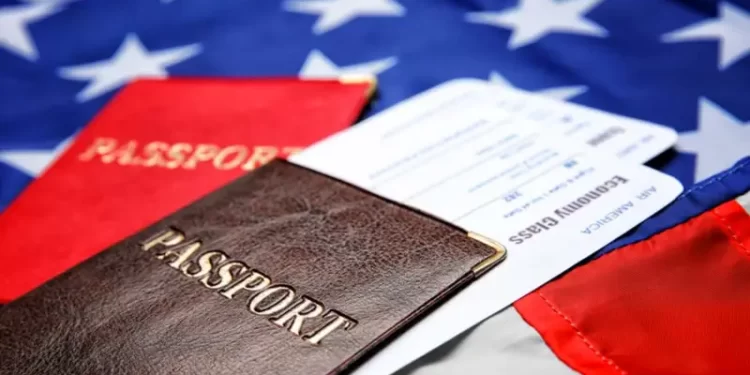The U.S. State Department has instructed American embassies worldwide to halt the scheduling of new student visa interviews, as the Trump administration prepares to implement enhanced social media vetting for foreign students and exchange visitors.
A diplomatic cable signed by Secretary of State Marco Rubio, and obtained by CBS News, directed all U.S. missions abroad to pause appointments for F and J visa categories — typically issued to international students and academic exchange participants — “until further guidance is issued.”
The directive, which took effect Tuesday, allows previously scheduled visa appointments to proceed. However, any unfilled time slots on embassy and consulate calendars are to be removed immediately.
The memo cited an imminent “expansion of required social media screening and vetting” for all student visa applicants, noting that the changes would carry “significant implications” for processing times and operational resources at U.S. diplomatic posts.
While the memo did not detail the scope or criteria of the enhanced vetting, analysts say the policy signals a hardening stance on student mobility under the Trump administration, which has repeatedly raised concerns about ideological threats, espionage, and campus-based activism among international students.
Chilling Effect on U.S. Higher Education
The policy shift arrives amid escalating tensions between the White House and leading American universities, many of which the administration has criticized for what it claims is an atmosphere of ideological bias and inadequate responses to antisemitism.
Institutions such as Harvard University have been at the center of recent federal scrutiny, with the administration recently revoking its ability to host international scholars — a move that was later blocked by a federal judge.
International students, who comprise a significant portion of the academic population at many U.S. institutions and contribute billions annually in tuition and local economic activity, are now facing increased uncertainty.
Read Also: Urgent call for action as cement makers miss price reporting deadline
“This could have a chilling effect on U.S. higher education competitiveness globally,” said a senior official at a U.S. education think tank, speaking on condition of anonymity. “Countries like Canada, Australia, and the UK are already capitalizing on perceptions that the U.S. is less welcoming to foreign talent.”
Heightened Political Overtones
The State Department has not publicly elaborated on the contents of the expanded social media screening process. However, in a press briefing on Tuesday, department spokesperson Tammy Bruce affirmed the administration’s commitment to “rigorous vetting,” stating, “We take very seriously the process of vetting who it is that comes into the country, and we’re going to continue to do that.”
Critics argue that the administration’s posture toward universities — particularly elite institutions — is politically motivated, driven in part by disputes over campus protests and diversity policies. The Trump administration has accused some colleges of failing to curtail antisemitic rhetoric, especially amid recent pro-Palestinian demonstrations, while also challenging the legality of affirmative action practices.
University leaders have pushed back, asserting that the administration is undermining academic freedom and weaponizing immigration policy for political purposes.
Broader Implications
If implemented, the expanded vetting regime could lead to longer visa processing times, further complicating international student admissions in the upcoming academic year. Education experts warn that a decline in international enrolment could significantly impact universities financially, particularly those with large foreign student populations who typically pay full tuition.
The developments mark a new chapter in the Trump administration’s broader immigration agenda, which has previously included attempts to restrict work permits for international graduates and tighten visa rules for scholars from certain countries. Many of these measures have faced legal challenges or been overturned in court.
As institutions await further clarification, stakeholders across the education and diplomatic sectors are closely monitoring how the forthcoming policies will affect international student flows — and the future of global academic exchange in the United States.

























